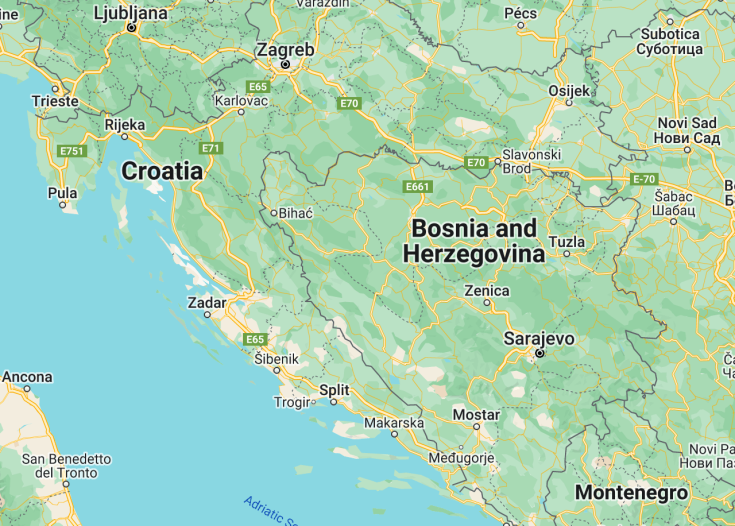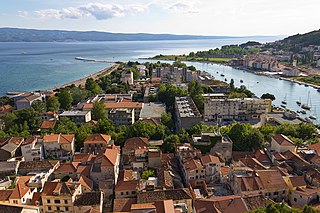Croatia, located at the crossroads of Central Europe, the Balkans, and the Mediterranean, is a country with a rich history and stunning natural beauty. With its beautiful coastline along the Adriatic Sea and numerous islands to explore, Croatia offers a wide range of activities for travelers. From the ancient walled city of Dubrovnik to the vibrant capital of Zagreb, there is something for everyone in this diverse and captivating country.
If you’re planning a trip to Croatia, don’t miss the opportunity to visit the stunning Plitvice Lakes National Park. This UNESCO World Heritage site is home to a series of cascading lakes and waterfalls, offering breathtaking views and plenty of hiking trails to explore.
For a truly unique cultural experience, consider attending a traditional klapa concert during your visit to Croatia. Klapa music is a form of traditional a cappella singing that has been recognized by UNESCO as an intangible cultural heritage. Immerse yourself in the rich musical traditions of Croatia and enjoy a memorable night of music and culture.
Top destinations in Croatia
Croatia: A Mediterranean Gem
| Capital | Zagreb |
| Time in Croatia | GMT+1 |
| Language spoken | Croatian |
| Population | 4,076,246 (source: World Bank) |
| Religion | Roman Catholicism (86.28%) Eastern Orthodox Christianity (4.4%) Islam (1.47%) Irreligion (1.43%) Other (6.42%) |
| Currency | Croatian Kuna (HRK) |
| Airports | Zagreb International Airport Dubrovnik Airport Split Airport Rijeka Airport |
Croatia: A land of rich history and natural beauty, Croatia captivates visitors with its stunning coastline, medieval towns, and lush national parks. Located in Southeastern Europe, Croatia is often referred to as the “Mediterranean Pearl” due to its prime location on the Adriatic Sea. With a fascinating mix of influences from its neighboring countries, Croatia offers a unique cultural experience.
Where is Croatia located?
Croatia is located in Southeastern Europe, bordered by Slovenia to the northwest, Hungary to the northeast, Serbia to the east, Bosnia and Herzegovina to the southeast, and Montenegro to the southeast. It has a long coastline along the Adriatic Sea.
What is Croatia famous for?
Croatia is famous for its breathtaking coastline and picturesque islands. The historic city of Dubrovnik, with its well-preserved medieval walls, is a UNESCO World Heritage Site and a favorite destination for travelers. The Plitvice Lakes National Park, with its cascading waterfalls and turquoise lakes, is another popular attraction. Croatia is also known for its rich history, including Roman ruins, medieval fortresses, and charming villages.
History
The history of Croatia dates back to ancient times, with evidence of human settlement in the region as early as the Paleolithic period. The area that is now Croatia was inhabited by various tribes and civilizations throughout its history, including the Illyrians, Celts, Romans, and Slavs.
(7th century – 9th century) Early Medieval Period
In the 7th century, Croats migrated to the region and established their own kingdom. The Croatian Kingdom was recognized as an independent state in the 9th century and adopted Christianity as its official religion.
(10th century – 16th century) Union with Hungary and Ottoman Threat
In the 10th century, Croatia entered into a personal union with the Kingdom of Hungary. This union lasted for several centuries, during which Croatia maintained its own autonomy and self-government. However, the region was constantly threatened by the Ottoman Empire, which led to frequent battles and conflicts.
(17th century – 19th century) Habsburg Rule and Austrian Empire
In the 17th century, Croatia came under Habsburg rule and became a part of the Austrian Empire. During this period, Croatia experienced significant cultural and economic development. The Croatian language and culture were promoted, and the region saw advancements in education, trade, and infrastructure.
(20th century) Kingdom of Yugoslavia and Independence
After World War I, Croatia became a part of the Kingdom of Serbs, Croats, and Slovenes, later renamed the Kingdom of Yugoslavia. During World War II, Croatia was occupied by Axis powers, and an independent state called the Independent State of Croatia was established. This period was marked by significant atrocities and human rights abuses.
After the war, Croatia became a part of the Socialist Federal Republic of Yugoslavia under communist rule. However, in the 1990s, Croatia declared its independence and entered into the Croatian War of Independence. The war resulted in the formation of the modern-day Republic of Croatia.
(21st century) Modern Day Croatia
Croatia has been a member of the United Nations since 1992 and joined the European Union in 2013. The country has seen significant economic growth and development in recent years and has become a popular tourist destination known for its beautiful coastline, historic cities, and rich cultural heritage.
Visit Croatia
What to see and do in Croatia
When visiting Croatia, there are numerous attractions and activities to enjoy. Some of the must-see destinations include:
- Dubrovnik: Explore the historic city walls and visit the iconic Old Town.
- Plitvice Lakes National Park: Experience the stunning natural beauty of the cascading lakes and waterfalls.
- Split: Discover the ancient Roman ruins, including the UNESCO-listed Diocletian’s Palace.
- Hvar: Relax on the picturesque island known for its vibrant nightlife and beautiful beaches.
- Zagreb: Visit the capital city and explore its historic landmarks, such as the Zagreb Cathedral and St. Mark’s Church.
In addition to these attractions, Croatia offers a wide range of outdoor activities, such as sailing along the Adriatic coast, hiking in the national parks, and enjoying water sports in the crystal-clear waters. The country is also renowned for its delicious cuisine, which includes fresh seafood, Mediterranean dishes, and unique regional specialties.
Events in Croatia
Croatia hosts a variety of events and festivals throughout the year, offering visitors a chance to experience the country’s rich cultural traditions and vibrant atmosphere. Some of the notable events in Croatia include:
- Dubrovnik Summer Festival (July-August): This renowned festival showcases a diverse program of theater, music, dance, and other cultural performances within the historic city walls of Dubrovnik.
- Ultra Europe Music Festival (July): Held in Split, this electronic music festival attracts top international DJs and music enthusiasts from around the world.
- Zagreb Advent (December): The capital city comes alive during the Advent season with festive decorations, outdoor markets, and a variety of entertainment options.
These events and many others offer a unique opportunity to immerse oneself in Croatia’s vibrant cultural scene and create unforgettable memories.
Best time to visit Croatia
The best time to visit Croatia depends on personal preferences and interests. The summer months of June to August are the peak tourist season, with warm temperatures and plenty of sunshine. This is the ideal time for beach lovers and outdoor enthusiasts to enjoy the coastal cities and islands.
For those seeking a more peaceful and less crowded experience, the shoulder seasons of spring (April to May) and autumn (September to October) can be excellent choices. During these months, the weather is generally mild, and the prices are more affordable. It is a great time to explore the cultural and historical sites without the crowds.
Winter (November to March) in Croatia can be cold, especially in the inland regions. However, it can be a magical time to visit if you enjoy winter activities such as skiing and experiencing holiday festivities in cities like Zagreb.
Is Croatia worth visiting?
Croatia is definitely worth visiting for its stunning natural landscapes, rich history, and vibrant culture. The country offers a diverse range of experiences, from exploring ancient Roman ruins to swimming in the crystal-clear waters of the Adriatic Sea.
However, it’s important to note that Croatia has become increasingly popular among tourists in recent years, especially during the peak summer season. This means that some popular destinations and attractions can be crowded, particularly in July and August. It’s recommended to plan your visit carefully and consider visiting during the shoulder seasons to avoid the crowds.
Overall, Croatia’s unique blend of history, natural beauty, and warm hospitality make it a country that is certainly worth exploring. Whether you’re interested in coastal adventures, cultural discoveries, or simply relaxing on beautiful beaches, Croatia has something to offer for everyone.


















